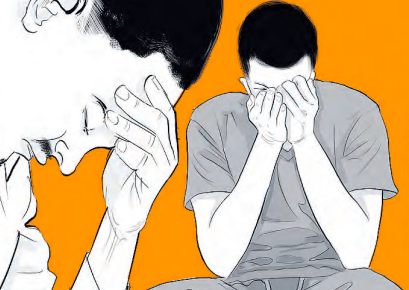
NEARLY half (47%) of employed Kenyans are highly stressed, with financial struggles being the main reason impacting on employees physical and mental health, according to a new survey.
This is on the back of high unemployment and low earnings for the employed where 70 per cent of Kenyans surveyed reported a decline in their 2024 incomes.
The annual Financial Services Monitor report by investment firm– Old Mutual shows only three in 10 Kenyans are left with some money after meeting basic expenses at the end of the month.
The second edition of the Old Mutual Financial Services Monitor (OMFSM), launched yesterday in Nairobi, explores the financial wellbeing of employed Kenyans, focusing on urban and peri-urban adults aged 20 to 59, and earning Sh12,000 or more, who represent approximately 63 per cent of the country’s population aged 15 to 64.
The findings shows Kenyans rely on mobile loans, personal loans from Chamas and loans from friends and family to help sustain their livelihoods.
The findings paint a concerning picture of financial insecurity, with a majority of Kenyans expressing diminished confidence in the economy which has declined since 2023, according to the report, with only one in 10 expressing confidence.
Some consumers who were positive previously, have now taken a neutral stance.
Key factors contributing to the decline in confidence include high living costs, taxes, rising food prices, unemployment, and a difficult business environment.
In the latest study, working Kenyans are less satisfied with their overall financial situation than they were in 2023 where less than three in 10 are satisfied.
The struggle with having enough income is evident as almost eight in 10 are earning less or the same as a year ago with spending power being eroded.
As a result, only three in 10 Kenyans report that their household income consistently covers all expenses with money left over at the end of the month.
In response to these financial challenges, many Kenyans are becoming more cautious with their spending.
They are downsising their living arrangements, opting for cheaper brands, moving children to more affordable schools, and cutting back on discretionary expenses such as dining out, entertainment, and travel.
A number are also opting to move to cheaper houses to cut on rent spending.To supplement their incomes, many are turning to entrepreneurship.
The OMFSM 2024 confirms that half of Kenyans now own a business, with 30 per cent of these ventures formally registered. However, only 16 per cent of these businesses are insured, leaving them vulnerable.
Additionally, most entrepreneurs rely on personal savings, business profits, and loans from savings groups (Chamas) to fund their businesses.
“As the OMFSM 2024 reveals, the traditional ways of earning a living or managing household expenses are no longer sufficient. As a result, Kenyans are increasingly finding alternative ways to cope with these economic pressures,” Old Mutual’s East Africa CEO, Arthur Oginga, said.
Among the most notable shifts for adaptation, he noted, is the rise of the informal economy.
“People are starting small businesses, offering services like tutoring, food delivery or selling second-hand goods, often bypassing formal employment altogether,” Oginga said. Meanwhile, despite increasing financial struggles, Kenyans are prioritising their long-term financial security.
About 85 per cent acknowledge the importance of saving for retirement, and the number of consumers saving for the future has increased— rising from 26 per cent in 2023 to 36 per cent in 2024.
However, confidence in having enough for retirement has significantly dropped, from 12 per cent last year to just seven per cent in 2024.











